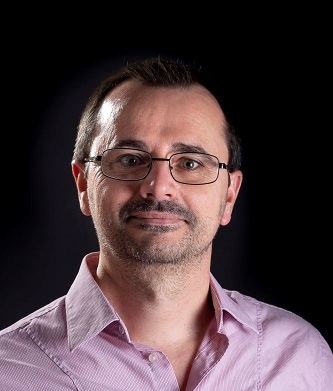Presentation

Seas and oceans are key topics of the 21st century. Specifically, preserving the fish stocks, monitoring the marine species or the biodiversity, developing marine renewable energies, predicting major events, depolluting the seabed, and assessing and protecting the submerged cultural heritage are topics of growing interest. To address these challenges, French scientists are combining their efforts in multidisciplinary approaches, as shown by the recent creation at the CNRS of a national research group (GdR OMER).
At LIRMM, about 30 scientists (researchers, engineers, postdoc, and PhD students) from computer science, robotics and microelectronics teams apply their work to the exploration and the monitoring of the marine environment, from coastal areas to the most remote oceanic places, by developing innovative tools in collaboration with biologists, ecologists, archaeologists, chemists, or mechanics.
Specificities of the LIRMM

The research is organised around these main topics:
- Microelectronic systems for tagging and monitoring marine species by satellite or LoRa communication, with in vivo measurement of physiological parameters.
- Algorithms for processing video or acoustic images by artificial intelligence for the identification of underwater species, for fish counting, or for the detection of underwater waste.
- Algorithms for automatic localization and mapping from video and acoustic images in karst or underwater environments.
- Design, control and navigation of underwater robots dedicated to archaeology, biology, pollution control, or inspection of offshore wind turbines.
- Operational safety of autonomous robotic systems for exploration or environmental monitoring.
- Construction of original datasets from citizen science data and development of visualization tools that account for uncertainties in these data (application to marine ecology).
Involved Teams
ADVANSE (ADVanced Analytics for data SciencE), Dexter (Design and control of robotic manipulators), ICAR (Image & Interaction), RSM (Underwater Robotics), SmartIES (Smart Integrated Electronic Systems).
This work is carried out within the framework of multidisciplinary collaborations with other laboratories of the university of Montpellier and with external partners, such as, for example, Ifremer, IRD, ONERA, the French Biodiversity Agency (Ofb), the French Department of Subaquatic and Underwater Archaeological Research (DRASSM), MARBEC laboratory, the university of Poitiers, the university of Perpignan, ENSTA Bretagne, the university of Nice Sophia-Antipolis, Stanford University, the University of California at Berkeley, the CINVESTAV in Mexico, the Instituto di Science Marine (ISMAR-CNR, Italy) and numerous companies.
Activities
- 2025/06/23 : Seminar by Professeur Oussama Khatib, Directeur du Stanford Robotics Laboratory (Stanford University, USA), “OceanOneK: A Deep-Sea Robotic Avatar”, and seminar by Vincent Creuze, Professor at LIRMM (Marine Robotics Team), “What contributions have robotics brought to underwater archaeology over the last 10 years?”.
- 2025/05/26 : Two seminars by Professors Thor I. Fossen (NTNU, Norway) and Yvan Pétillot (Heriot Watt University, UK) in the framework of a Marine Robotics workshop (GDR Robotique) organized by LIRMM.
- 2025/04/01 : Internal seminar for members of the cross-department research theme, presenting the work carried out within the departments of Computer Science, Robotics, and Microelectronics of LIRMM.
- 2024/12/02 : Seminar by Professor Maarja Kruusmaa, Director of the Center of Biorobotics of Tallinn Technological University (TalTech, Estonie), “Shallow water robotics: opportunities and challenges“.
- 2024/10/5&6 : Science Festival 2024 theme : “Ocean of knowledges”, animations about the Sea & Ocean activities of the LIRMM, Village des sciences, Faculté d’Éducation de Montpellier.
- 2024/05/27 : Seminar by Olivier Chocron, associate professor at ENIB, IRDL, Brest, “Autonomous Mobility for Underwater Robots Enhancement”.
- 2023/10/11 : Seminar by Elbert Liebenberg, Nelson Mandela University, South Africa, “Recent Activities in Marine Robotics”, followed by the presentations of the theses of Raissa Benazouz (robotics) and Quentin Ponzo (microelectronics).
- 2023/04/21 :Two talks about recent scientific works within the Water-Sea-Ocean cross-department research theme. “Learning-based methods for detection and classification of marine litters for automated seabed cleaning by robots”, by Cyril Barrelet, PhD student in robotics and computer science at LIRMM, followed by “How reliable are the data gathered by an autonomous marine robot ? Example of a bathymetric survey.”, by Karen Godary-Dejean, Researcher in robotics at LIRMM.
- 2022/11/22 : Two talks about recent scientific works within the Water-Sea-Ocean cross-department research theme. “Geometric Identification of a cable-driven ROV for hydrodynamic monitoring of coastal or portuary areas” by Damien Gueners, Post-doctoral student in Robotics at LIRMM, followed by “New tools for oceanic and bidoversity monitoring: from sensors to sea applications”, by Serge Bernard, Research Director in microelectronics at LIRMM-CNRS.
- Sept 22 and 23, 2022 : Interdisciplinary German-French Workshop, “3D simulation of the seabed for biology and robotics”, contacts: noura.faraj’at’lirmm.fr and karen.godary-dejean’at’umontpellier.fr
- 2022/06/21 : Seminar by Professor Frédéric Boyer, IMT Atlantique / LS2N (Nantes), “Some results in bio-inspired locomotion and sensing for underwater robotics”.
- 2022/04/21 : Seminar by Professor Oussama Khatib, Director of the Stanford Robotics Laboratory (Stanford University, USA), “Deep Sea Robotic Exploration”.
- 2022/04/08 : Presentation of the Water-Sea-Ocean cross-department research theme at Submeeting 2022, by V. Creuze.
- 2022/03/25 : Two talks about recent scientific works within the Water-Sea-Ocean cross-department research theme. “Bioimpedance for biologging”, by Vincent Kerzérho, Tenure Researcher in microelectronics at LIRMM-CNRS, followed by “Multilevel Fault Tolerance for autonomous robots – Application to an underwater robot”, by Adrien Hereau, PhD candidate in Robotics at LIRMM.
- 2021/10/04 : Half-day of exchange and presentation of the work of the Dexter, Explore, ICAR and SmartIES teams of the LIRMM.
- 2021/09/30 : Seminar by Christophe Viel, CNRS Research Fellow at LabSTICC (Brest, France): “Self-management of the umbilical of an ROV (Remotely Operated Vehicle) for underwater exploration”.
- 2021/09/28 : Seminar by Professor Oussama Khatib, Director of the Stanford Robotics Laboratory (Stanford University, USA), “The Era of Human-Robot Collaboration: Deep Sea Exploration”.








